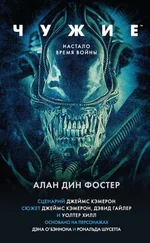He was the last one.
The others, the rest, the balance, the remainder: they were all gone now, in their mass and multitudes. Memories and ghosts of memories. No one knew how many of them there had been before they were no more, least of all him. There had been a time when countings were done, but such behaviors belonged not to his time but to others. There had been several such times, he knew. Eras as well as countings.
First came the Expansion. That was followed by the Consolidation. Then there was the Union, which birthed the Empire, which gave way to the Collapse. After a long, slow climb there came the Reunion. It dissolved into the Second Empire, which was followed by the Interregnum. The Interregnum was long and prosperous and offered, among other things, something new to humankind: time for reflection. It was an age when inherent and inherited stupidity finally surrendered to understanding and common sense, and saw among humans the first firm grasping of those things that really matter. As a result, the Conclave that followed lasted even longer than the Interregnum. It showed what could be done. Humanity spread out and flourished. Did some grand things. Noble things, even.
But in the end, or perhaps it should be said in The End, it was revealed that the species’ baser instincts had not, after all, been laid to rest but had merely been slumbering. They reasserted themselves with a vengeance. Human fought human over things that, in the end, mattered little. There was shouting and screaming and cursing. There was slaughter and destruction and aggrandizement.
Finally, in every sense of the word, there was the Aura Malignance.
That was when everything began to come apart. As the Conclave disintegrated, the bold and the hopeful and the vainglorious made an attempt at a Third Empire, but the inexorable spread of the plague known as the Aura Malignance had weakened the species to the point where that sort of racial energy could no longer be summoned in quantities sufficient to sustain any kind of functioning organization across the spaces between the stars. Gradually the means to conjoin, and eventually even to communicate, began to fade away.
He didn’t know if this was due to a forgetting of knowledge or the loss of the rare elements that underlay the necessary technology. Worlds lost contact with worlds. The society of man splintered, then fractured, and before long commenced a long, slow slide toward total collapse. Only this time it was different. This time there was no recovery, no reconsolidation, not even a last desperate reach for Empire.
On Seraboth, where he was from, society had been slowly crumbling for several hundred years. Everyone thought they were safe from the last of the self-seeking spores, that final folly of human ingenuity that always seems to burn brightest in the service of war. But they weren’t. Shards of the self-dispersing, all-pervasive biological weapon arrived, and began to kill. Missing no one, the infection ruptured neural connections in the brain. People who thought they had no more than a bad headache flinched, winced, and collapsed, never to rise again.
Serabothian scientists, and there were many who were as dedicated as they were competent, worked together across political boundaries. Like all who had tried and perished before them, they could do nothing. The Aura Malignance was too virulent, too mutable, and, most critically, too swiftly spreading. The kind of interworld science that had bolstered the various federations and alliances and empires had degenerated. Not only did the facilities to share and communicate no longer exist; neither did the individuals or intelligent machines that might have had the capacity to find a cure.
So on Seraboth, as on every other inhabited world, the people began to die. In an earlier time they might have gone down fighting, raging at the futility of their situation, shaking defiant fists at the stars, battling to the last in search of a solution to the problem. Instead, once it was felt that nothing could be done, the only response was a vast cultural sigh and a grim acceptance of the inevitable. People perished in silence and, to a certain extent, in peace. They did not know theirs was among the last of the settled worlds to succumb. He certainly did not know he would be the last of the last, the only one to survive the otherwise all-destroying, fast-moving contagion.
All of this he knew only because of the aliens. The Myssari were very good to him. They found him wandering, tired and hungry and approaching old age, and immediately set to work to fortify what was left of his bodily processes. When they told him what they knew, that human civilization had long since fallen, that all the many and innumerable of his kin on the dozens of settled worlds were gone—cities empty, countrysides returned to the unhindered fecundity of nature, vast space stations drifting in emptiness that were staffed now only by the drifting dead—he decided he might as well die, too. But even when all else slips away, the tiny flame that is the urge to survive still flickers in the sole surviving representative of a species.
So he didn’t fight it. He let them fix him up, as much as they could. Their xenologists were accomplished, their surgeons expert, their machines advanced. They could not restore him to youth, of course. The Myssari could repair, rebuild, refresh, but they could not reverse time. Taking into account their limitations and his, by the time they finished their work he felt better than he had in decades. Though to what end he could not imagine. He did not particularly look forward to a twilight career as an artifact, but though confused by what had happened to him he understood that the aliens had done what they had done out of genuine interest. It had taken some time and effort on their part to preserve and extend his life. Could he do less in return than live?
Thus he became, quietly and with resignation, a living exhibit. Ruslan: the last Homo sapiens .
There was a time when he had possessed more than one name, but now found he could not remember it. Somewhere in the course of his aimless wanderings on Seraboth, it, like so many other things, had become lost. He could not even recall if “Ruslan” was a first name, a last, or something else. Not that it mattered. There were no other Ruslans with whom to be confused. There were no others at all.
One thing in particular about the situation in which he found himself was wonderfully ironic. Humans had spent thousands of years believing they were the only intelligent species—or at least the only space-traversing intelligent species—in the galaxy. Ultimately they became convinced of it and no longer even bothered to ponder the possibility that there might be others. Human civilization rose and fell, rose and fell, finally falling for the last time, and when only one last solitary wandering soul remained, the aliens arrived. Delicious. And not just the Myssari. According to Anu’lex, one of his restorers, there were dozens of intelligent species out there. All thriving and exploring and arguing and advancing and pushing their own particular species-centric agendas. All the while that humankind was rising and falling, it was unknowingly doing so on the empty side of the galaxy, the existence of its prolific and multifarious neighbors masked by distance, their communications obscured by intervening radiation.
Striving to be a good and grateful artifact, he told the inquisitive Myssari what he could. He helped their linguists decipher the floating photonic files that were present in every city center and information repository on Seraboth. This allowed the aliens to access corollary records on dozens of other now-empty human worlds. While such records differed in matters local, the general sweep of the past many hundreds of years remained the same. The story of the tailless bipeds was a heroic tale with a sad ending. Human history had ever been thus.
Читать дальше
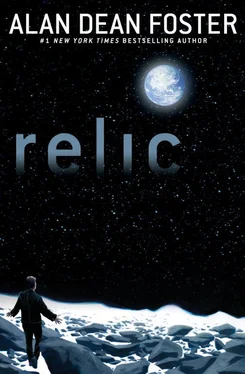

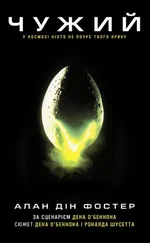
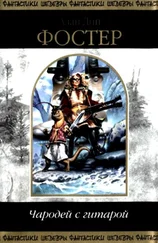
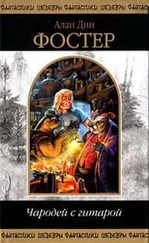
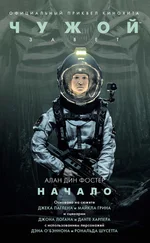
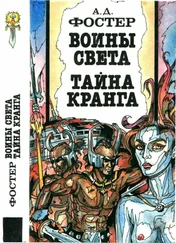
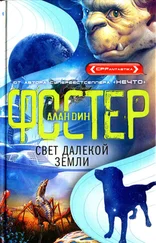
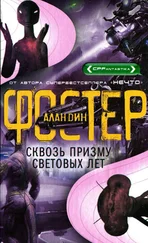
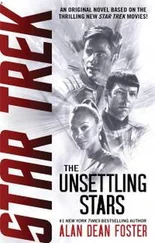
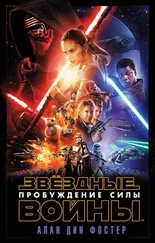
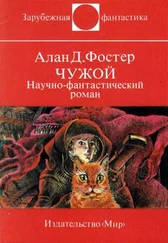
![Алан Дин Фостер - Чужой 3 [litres]](/books/420396/alan-din-foster-chuzhoj-3-litres-thumb.webp)
